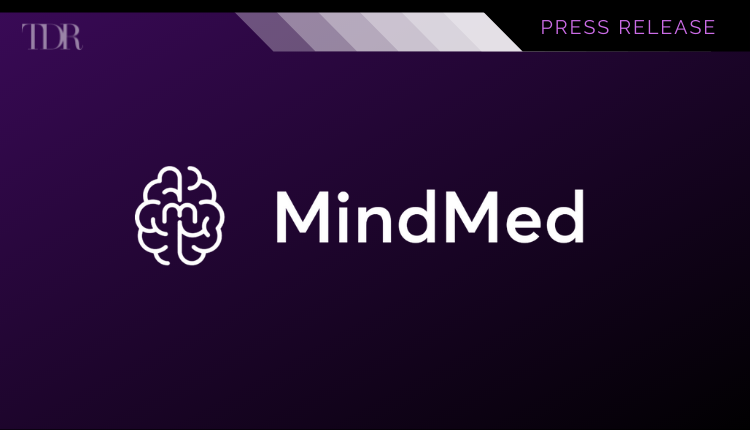
MindMed Expands its Drug Development Pipeline with Launch of R(-)-MDMA Program
MindMed (NASDAQ: MNMD) (NEO: MMED), a leading biotech company developing psychedelic-inspired therapies, is pleased to announce an expansion of its pipeline with the launch of a program to develop R(-)-MDMA for the treatment of social anxiety and functioning in diagnoses that include Autism Spectrum Disorder (ASD). This program represents a significant expansion and diversification of MindMed’s pipeline and furthers the Company’s mission to bring innovative products to benefit patients and address unmet medical needs.
Social anxiety and impairments in social functioning are hallmarks of ASD, which occurs in approximately 2% of individuals in the US. At present, there are no approved therapies for the core symptoms of ASD and there remains a significant unmet need for novel therapies to support people with ASD. The economic cost of ASD in the US is predicted to reach $461 billion by 2025, highlighting the need and opportunity for novel interventions. Beyond ASD, approximately 12% of the US general population experience Social Anxiety Disorder at some point in their lives, according to the National Institute of Mental Health.
MDMA, which is a racemic mixture of two structurally unique stereoisomers, R(-) and S(+), is currently in development for the treatment of Post-traumatic Stress Disorder (PTSD), and has demonstrated statistically significant positive results in a pivotal Phase 3 trial. Additionally, in a pilot clinical trial, participants with ASD showed strong and statistically significant improvements in social anxiety and functioning from short-term treatment with MDMA.
The two enantiomers of MDMA each have unique pharmacological activity and preclinical data suggests that the R(-) enantiomer maintains the acute pro-social and empathogenic benefits of racemic MDMA, while demonstrating fewer signs of stimulant activity, neurotoxicity, hyperthermia and abuse liability. This favorable profile suggests that R(-)-MDMA could have applications beyond those of racemic MDMA, including the potential for novel more accessible delivery models and repeat dosing. From a safety perspective, the company has great confidence in the R(-) enantiomer based on its favorable preclinical pharmacology and the extent of prior human dosing of the racemic mixture, which provides valuable insight into the expected safety and tolerability of R(-)-MDMA.
MindMed plans to advance its R(-)-MDMA development program targeting US and EU registration and expects to initiate its first clinical trials in 2022. As a key initial study, MindMed and the Liechti Lab at University Hospital Basel (UHB) plan to initiate a comparative pharmacokinetics and pharmacodynamic clinical trial of R(-)-MDMA, S(+)-MDMA and R/S-MDMA in 2022. This double blind, placebo-controlled, crossover study will assess differences in acute and lasting effects between MDMA and its two enantiomers in healthy subjects and will provide important data on the optimal treatment model for R(-)-MDMA.
The launch of our R(-)-MDMA program represents an important milestone in the continued progress of MindMed and builds on our commitment to developing psychedelics and psychedelic-inspired therapies to treat significant unmet medical needs. The compelling clinical efficacy of MDMA coupled with the unique pharmacological benefits of its R(-) enantiomer suggest that there is an enormous opportunity to bring this second generation psychedelic program to market with the potential for new clinical applications, novel treatment paradigms and enhanced accessibility.
MindMed CEO Robert Barrow
MindMed Chief Medical Officer, Daniel R Karlin, MD, MA, said, “Our ability to enjoy life has a general dependency on feeling connected to other people, sharing experiences, and conveying shared emotions. There are a number of disorders and conditions, and even varieties of non-pathological states, in which individuals find it difficult to convey their own internal experience and emotions. They also may struggle to recognize the routine cues and signals that those around them use to convey emotions. These difficulties themselves can cause cycles of distressing anxiety, and in turn worsen both the sense, and the reality, of interpersonal disconnect. It is our intention with this new program to offer patients new hope for meaningful connection to the millions of people for whom social anxiety and functioning create day-to-day difficulties.”
To view the original press release in its entirety click here



